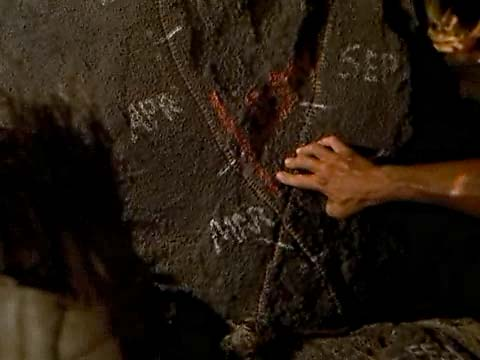
“WILSON!”
“Wilson, I’m sorry!”
Work, lately, feels a little like being a castaway.
Isolating yourself. Dreaming of the past. Trusting in technology — however advanced or primitive — to get us through.
And work could stay this way for a while.
The COVID-19 pandemic has brought an unprecedented number of information workers, including marketers, home for work. In fact, 62% of American workers said they’ve worked from home at some point during this crisis. But many experts are estimating that this volume of distributed and remote work won’t decrease after the pandemic ends. They see that hundreds, if not thousands, of businesses are realizing they never really needed an office — they could have operated remotely all along.
As we all come to grips with what could become the new normal, I realized there are lessons to be learned from feeling like a castaway. So, I turned to the world’s most famous — and successful — castaway: Chuck Noland.
His actions are actually great examples of how we should approach project management for remote marketers. Don’t believe me? Keep reading to learn my top project management tips for remote marketers with lessons from Cast Away.
Tip #1 – Over-communicate with your team and your clients.
There are a lot of iconic relationships shown in film. Bert and Ernie. Lucy and Ethel. And, of course, Chuck and Wilson.
As the film progresses, Chuck talks to Wilson more and more. In a lot of ways, he helps Chuck stay sane and talk through challenges like making fire, building a raft, and more.
While we aren’t physically together, it’s still incredibly important to keep open lines of communication among your marketing team. Similar to Chuck and Wilson, communicating often will keep you sane and organized, as well as give you a sounding board. You may even feel that you’re over-communicating with your team, but this is natural and necessary. When we’re remote, it’s more likely we’ll skip over a message, misinterpret text, or a host of other things. Over-communicating helps ensure those details are less likely to be missed or misunderstood.
Over-communicating doesn’t just apply to your team, either. Over-communicating with clients reaps the same benefits — your messages are less likely to be missed or misunderstood. And in my experience, clients appreciate the update, even if it’s only a couple of sentences.
Tip #2 – Rely on technology for collaboration, communication, and more.
Chuck shows us just how resourceful he is: he fashioned a figure skate into a knife, a porta-potty into a sail, a volleyball into a companion, and more. And if there’s one thing you need to be when stranded on an island, it’s resourceful.
That same holds true while we all work on our own remote “islands.” Physically separated, we need to rely on our technology resources to bring us closer together and closer to our goals. Here at TopRank Marketing, we use Slack for team communication, Google Drive to collaborate, Zoom to meet virtually at any time, and Mavenlink to organize our work. We used them while in the office, but we’ve become even more dependent on them outside of the office. We’ve also started to use these tools in new ways to help us adapt to the changing work environment. For example, we’re now using Slack for informal voice calls between teams since we can’t just stop by someone’s desk or stay in a meeting room together after a client meeting to discuss a plan of attack.
Tip #3 – Organize your projects and tasks often.
Once the time jump happens in Cast Away, Chuck has a plan. He’s getting off the island. But to stay on track, he has to organize his materials and plan out his actions carefully. He even makes a chart and counts down the days on the walls of his cave so he can stay organized and catch the trade winds in time.

To help your team stay on track, you need to stay organized and regularly check in on your plans. Keeping a chart or countdown like Chuck isn’t a bad idea, either. It’ll help you stay up to date on your projects and tasks without having to chase down details or remind yourself of progress.
Tip #4 – Run and share reports on a more regular and frequent basis.
Early on in Chuck’s journey, he and Wilson realize they need more information to aid them in their survival. They need to know just how lost they really are. So, they crunch the numbers. And what they find out is harrowing: the search area they’re lost in is over 500,000 square miles. The chance of someone finding them is slim to none.
Realizing that a search party is unlikely to find them, Chuck and Wilson spur into action. It empowers them to make the life-saving decision of getting off the island.
Information is powerful and reporting helps surface insights that aid your team in their decision making. From a project management perspective, increasing the frequency of your reporting will also help illuminate how your efficiency has changed since shifting to remote work. Run and share reports often with your team and it will help your projects progress and your team adapt to remote work.
“From a project management perspective, increasing the frequency of your reporting will also help illuminate how your efficiency has changed since shifting to remote work.” — Anne Leuman @annieleuman Share on XTip #5 – Escape with some time away.
Chuck Noland eventually made it off the island with a lot of hard work and a small miracle.
You, however, have the luxury of being able to leave the mental “island” of work at any time. Schedule a happy hour with the team. Call each other and go on a group walk. Have a Halloween in April party. We’ve done all of those things here at TopRank and it’s done wonders for our engagement with work. Taking breaks and giving yourself a mental escape is essential to staying motivated with and focused on your projects.
The Island Isn’t So Bad… With the Right Approach
It’s normal for us all to feel like we live on our own islands during this time. Because we do, we’re all separated by distance. But that doesn’t mean there aren’t other ways to come together and overcome the physical barriers between us.
Over-communicating, relying on technology, staying organized, sharing reports, and giving yourself and your team an escape are the best project management tips for overcoming these remote challenges.
And I’m sure this will be all of us once the crisis passes:



